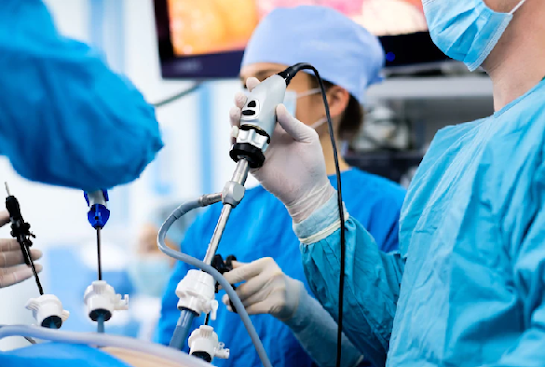An Introduction To Laparoscopic Surgery
Laparoscopic surgery is a minimally invasive type of
surgical procedure that has revolutionized the way surgeons operate. During laparoscopic
surgery, the surgeon accesses the body through small incisions made in the
abdominal wall and performs the operation with the aid of a laparoscope—a long,
thin tube with a light and camera attached at one end. This type of surgery
offers numerous benefits over traditional open surgery—such as less pain,
shorter recovery time, and fewer complications—which makes it an attractive
option for many patients. Let’s explore further why laparoscopic surgery might
be right for you.
Benefits Of Laparoscopic
Surgery
The main benefit of laparoscopic surgery is its minimal invasiveness. Instead of making large incisions in order to gain access to internal organs or tissue, only several small incisions are needed during this procedure. This means less trauma to surrounding tissue and fewer postoperative complications. Furthermore, because there is less disruption to tissue, patients often experience less bleeding during and after the procedure as well as reduced risk of infection. Additionally, because the area being operated on is magnified by the laparoscope's camera lens, there is greater precision when performing delicate procedures such as removing tumors or repairing organs such as the bladder or uterus.
Another advantage of laparoscopic surgery from Laparoscopic Surgeon in Thane West is its
shorter recovery time compared to open surgery. Because less trauma occurs when
accessing internal organs through smaller incisions, patients tend to
experience less discomfort after their operation. Studies have also shown that
hospital stays are shorter for those undergoing laparoscopic procedures than
those who undergo open surgeries since patients can usually return home sooner
after having a minimally invasive procedure performed.
The Recovery Process
After Laparoscopy
Recovery from a laparoscopy typically takes between two and
four weeks depending on how extensive your particular procedure was and other
factors such as age or pre-existing medical conditions that may affect healing
time. During this period your surgeon will likely recommend avoiding strenuous
activities such as lifting heavy objects while your body heals from any tissue
trauma sustained during surgery. In addition, you should always follow your
surgeon’s instructions regarding taking medications like pain relievers if
necessary or abstaining from bathtubs until given permission by your doctor to
do so for safety reasons.
Conclusion:
infection, shorter recovery times and fewer complications overall due to its minimally invasive nature which makes it an attractive option for many patients looking for relief from their ailments without having too much downtime following their operations . If you think this kind of surgical approach might be right for you then make sure to discuss it further with your surgeon in order to determine if it’s an appropriate course of action based on your individual needs and medical history before making any final decisions on treatment options available to you.




Comments
Post a Comment